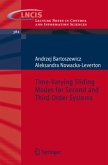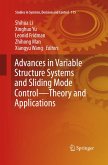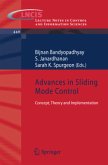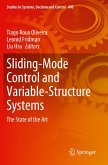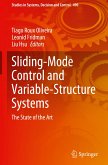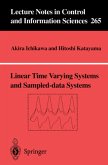This book is a collection of invited chapters covering several areas of modern sliding mode control theory. Preparing this book we tried to identify key c- tributions de?ning the theoretical and applicative state of the art of the sliding mode control theory and the most promising trends of the ongoing research activities. The contributions is divided in four main parts: Part I: Basic Theory. Part II: Design Methods Part III: Observers and Fault Detection Part IV: Applications The ?rst part of the book (Part I: Basic Theory) is devoted to a collection of sixmostlytheoreticalchaptersaddressingbasictheoreticalissuesofsliding-mode based control systems. The ?rst Chapter, by Giorgio Bartolini, Elisabetta Punta, and Tullio Zolezzi, presents new de?nitions of approximability for nonlinear second order sliding mode control systems including the comparison with the related known pr- erties for ?rst order sliding mode control methods. Su?cient conditions are - tainedfor second-orderregularization,a sliding motionerrorestimate is derived, and some relevant examples are discussed. Chapter 2, by Igor Boiko, Leonid Fridman, Alessandro Pisano, and Elio Usai, developsasystematicapproachtothechatteringanalysisinsystemswithsecond order sliding modes. Su?cient conditions for the existence of orbitally stable periodic motions are found in terms of the properties of corresponding Poincar e maps. For linear systems driven by the second-order SMC Generalized Sub- Optimal algorithm, analysis tools based on the frequency-domain methods are developed. Examples of analysis, worked examples, and simulation results are given throughout the Chapter.
Bitte wählen Sie Ihr Anliegen aus.
Rechnungen
Retourenschein anfordern
Bestellstatus
Storno



